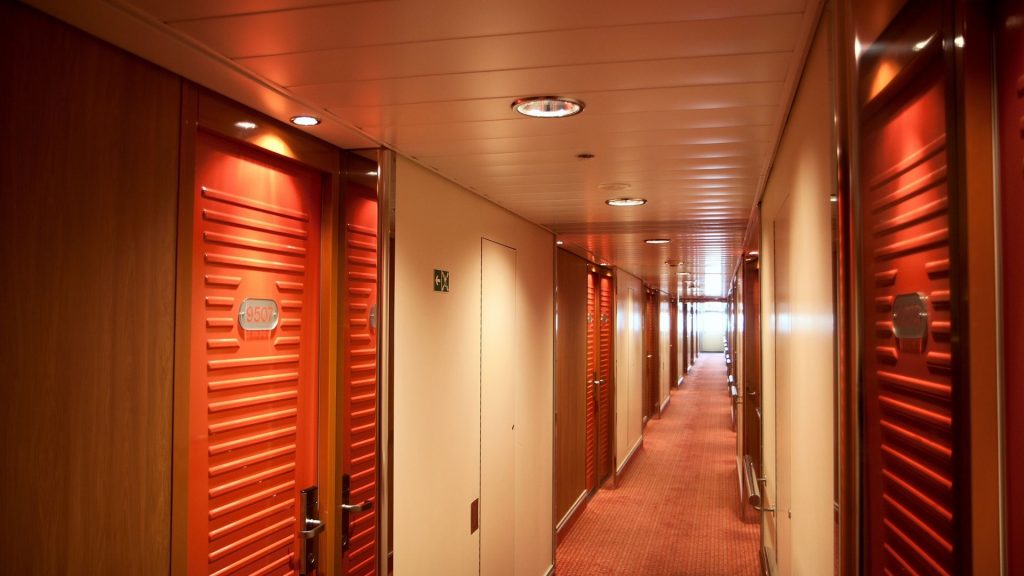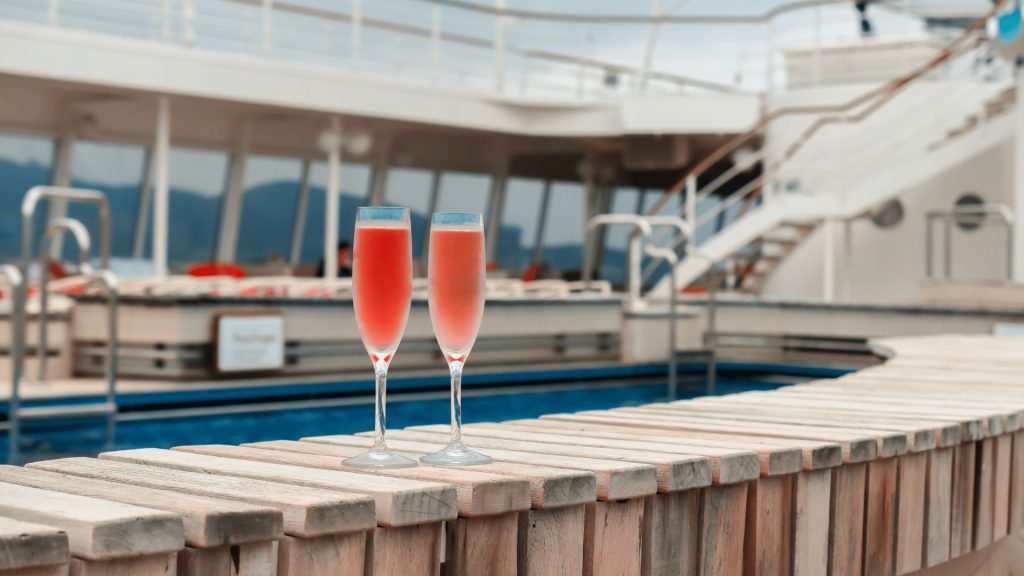Working in Hospitality Onboard a Cruise Ship vs. Onshore: What’s the Difference?
Have you spent your career working at the finest high-end hotels but want to learn what it's like to work in hospitality onboard a Cruise Ship?
Think the Ritz Carlton or the Four Seasons. Transitioning to life at sea, working in the hospitality sector onboard a cruise ship, is quite the career move. Not only do you have to earn your sea legs, but you've got to learn a whole new way of doing things.
Even the finest hotel is just one establishment in a city – with all the requisite amenities nearby. A cruise ship, however, is almost a floating city in itself.
Below, we go through six of the key differences between working in hospitality onboard a cruise ship versus onshore.
Key Differences Between Hospitality Work Onboard a Cruise Ship vs. Onshore
- Living Quarters
- Working Environment and Hours
- Guest Interaction
- Services and Roles
- Training and Skills Development
- Cultural Diversity
Living Quarters
The living quarters for employees in the hospitality sector differ significantly between cruise ships and onshore luxury hotels. On cruise ships, staff members often reside in shared cabins within the vessel. These cabins are typically compact, maximising space efficiency, which means limited personal space and privacy. The living experience is communal, and crew members must adapt to being in close quarters with their colleagues for extended periods.
On the other hand, employees at onshore hotels generally live off-site in their own homes or provided staff accommodations. These arrangements offer more space, privacy, and the comfort of a stable living environment. This fundamental difference in living conditions influences not just the personal life of the employees but also their work-life balance.

Working Environment and Hours
The working environment and hours in the hospitality industry vary greatly between cruise ships and onshore hotels.
On a cruise ship, the environment is dynamic and ever-changing as the vessel moves from one location to another. Employees often work longer hours, sometimes up to seven days a week, due to the operational demands of a continuously running ship. The boundaries between work hours and personal time can blur, as employees are always on-site.
In contrast, onshore hotel employees usually have more regular and predictable schedules, with structured shifts and designated days off. The more stable environment allows for clearer separation between work and personal time, contributing to potentially better work-life balance.
Guest Interaction
Guest interaction also differs between cruise ships and onshore hotels. On cruise ships, employees have the opportunity to build more prolonged and in-depth relationships with guests. Since passengers spend an extended period on the ship, staff members often interact with the same guests multiple times throughout the cruise. This repeated interaction allows for a more personalised service experience.
In contrast, in high-end onshore hotels, interactions with guests tend to be shorter and more transactional. Guests usually stay for a few days, and the turnover is higher, leading to less opportunity for staff to develop deep connections with guests. This difference in guest interaction affects the nature and approach of customer service in these two settings.
Services and Roles
On cruise ships, employees often juggle multiple roles due to the compact crew size. They might be involved in various tasks ranging from dining services and housekeeping to onboard entertainment. This multifunctional role requires staff to be versatile and quickly adaptable to different service needs.
On the other hand, employees in onshore luxury hotels are more likely to have specialised roles. These roles can range from guest relations culinary expertise to event management, allowing staff to develop deeper expertise and provide high-quality, specialised services.

Training and Skills Development
Training for cruise ship staff extensively covers safety and emergency procedures, which are vital for the unique maritime environment. Additionally, they receive training in standard hospitality practices to ensure a high level of guest service.
Onshore hotel staff, in comparison, undergo comprehensive training focused on the hotel's specific brand standards, customer service excellence, and luxury service techniques. This training often includes detailed instructions on personalising guest experiences and maintaining the high standards expected at luxury establishments.
Cultural Diversity
The crew and guests on cruise ships often represent a wide array of cultural backgrounds, which requires staff to be highly adaptable and culturally sensitive. This diversity is central to the job, offering a rich, multicultural work environment.
Onshore luxury hotels also deal with diverse clientele, but there is a stronger emphasis on integrating local cultural elements into the guest experience. Staff are trained to be culturally aware and adept at catering to international guests, while showcasing the local customs and traditions that define the hotel's location.
If you like reading this blog then why not discover our others on our News & Events page by clicking here.

